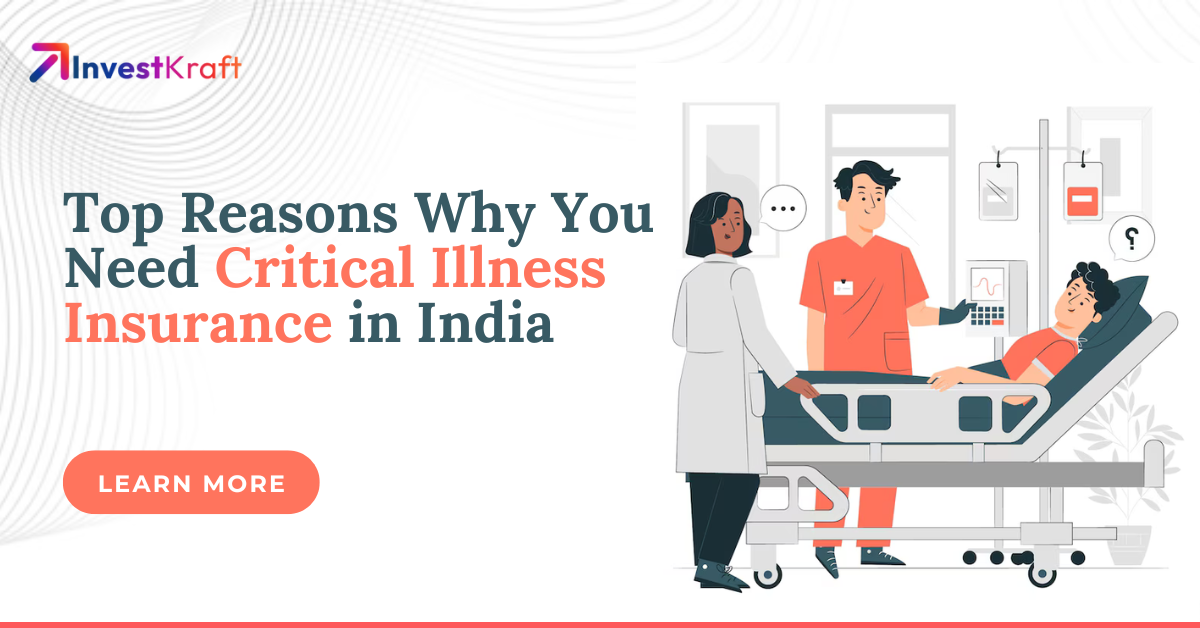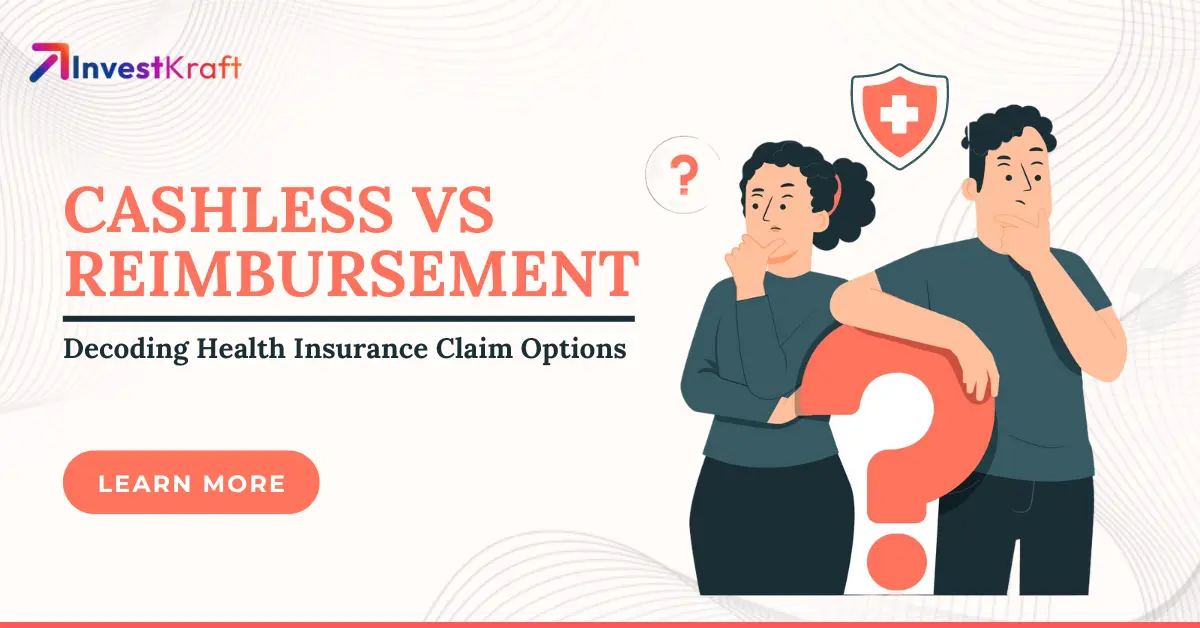Smart Ways to Cut Down Your Health Insurance Premiums in India 2025

It is challenging to create a personal finance plan without considering unforeseen medical costs, especially in today’s society. Recent history has demonstrated the impact of global health crises, such as the COVID-19 pandemic a few years ago, which has resulted in long-term health issues for many individuals. Additionally, healthcare expenses continue to increase on a global scale.
One of the main factors to consider is that medical inflation rates are consistently higher than the overall inflation. In India, hospitalization costs have been known to double every five years. Given these circumstances, it is crucial to pay attention to the importance of having health insurance. However, many individuals also have concerns about the cost of health insurance and whether there are ways to reduce the premiums. Luckily, with a few helpful tips, it is possible to lower one’s health insurance premium.
Why Is It Important to Reduce Health Insurance Premium Costs?
Reducing health insurance premium costs is crucial for several reasons. They are -
- Financial goals - Health insurance premiums can have a significant impact on your financial goals and plans. Without considering the possibility of sudden increases in premiums, your financial plans may be derailed. Therefore it is important to account for potential changes in health insurance costs when setting and adjusting your financial goals.
- Take-home pay - Rising health insurance costs can significantly eat into your take-home pay, leaving you with less money to spend on goods and services. As a result, lower take-home pay can directly impact consumer spending, potentially leading to a decrease in economic activity.
- Other Insurance purchases - Increasing health insurance costs have a ripple effect, leading people to purchase less insurance for other risks. As individuals and families grapple with the financial burden of health insurance, they may opt for lower coverage or forego insurance in other areas such as life, home or auto. This exposes them to greater financial risk in a variety of other aspects, making it important to address the affordability and accessibility of insurance across the board.
Top Tips and Tricks to Reduce Health Insurance Premiums
To reduce health insurance premiums effectively, you can employ various strategies. Here are some valuable tips and tricks -
1. Purchase Insurance Early
Buying health insurance at a younger age is a smart move as it can lead to significantly lower premiums. Younger individuals are less likely to have health issues, so insurers offer them lower rates. This proactive approach can help lock in lower rates for the long term.
2. Opt for Online Purchases
Online health insurance purchases can lead to savings due to the absence of intermediary costs, resulting in lower premiums. Furthermore, online insurers usually offer tools to compare plans and generate quotes, making it easier for consumers to find the most suitable and affordable option.
3. Utilize Group Insurance Plans
Consider taking advantage of group insurance plans offered by your employer. These plans provide affordable coverage by sharing the financial burden with the company. To enhance your protection, you can also consider getting a personal plan to fill any gaps in coverage.
4. Maintain a Healthy Lifestyle
A healthy lifestyle can result in lower insurance premiums as some insurers offer discounts to policyholders who participate in fitness activities. By syncing fitness trackers with insurance apps, individuals can receive incentives for staying active. This not only promotes better health but also leads to potential cost savings.
5. Take Advantage of No Claim Bonuses
No Claim Bonuses (NCBs) can be a great way to increase your coverage without increasing your premium. By avoiding claims for minor health issues you can earn NCBs and enjoy the benefits of higher coverage. This encourages policyholders to be conscious of their claims, resulting in potential long-term savings.
6. Compare Different Plans
Before choosing a health insurance plan, it is important to thoroughly compare the available options. In addition to looking at premium costs, it is essential to consider coverage limits, exclusions and benefits. By conducting a detailed comparison, you can find a plan that offers the best value for your specific needs and possibly reduce your overall expenses.
7. Consider Top-Up Plans
Top-up health insurance plans offer cost-effective options for enhancing your coverage by providing additional benefits at a lower premium than comprehensive plans. They can be a practical solution for boosting protection against major medical expenses without substantially increasing your overall premium.
8. Choose Family Floater Plans
Family floater plans are a cost-effective option because they provide coverage for multiple family members under a single policy. This not only saves money but also guarantees sufficient coverage for the entire family.
9. Leverage Preventive Care Benefits
Using preventive care services, like regular check-ups and screenings, is essential for detecting health problems early on. The best part is that many health plans cover these services at no additional cost, making it easier to manage healthcare expenses. By taking advantage of these benefits, you can stay ahead of the potential health issues.
10. Explore Tax Benefits
To optimize your financial advantages, familiarize yourself with the tax benefits of health insurance in your region. Deducting health insurance premiums from taxable income can lead to additional savings for you. Take the time to explore and understand the tax benefits associated with health insurance to make the most of this opportunity.
11. Explore Government Schemes
It is important to explore government-sponsored health insurance schemes that offer subsidized or free coverage based on your location and income level. Research the options available in your area to see if you qualify for any cost-saving programmes. This can help you access the necessary healthcare services without financial burden.
12. Port Your Insurance Policy
Consider porting your insurance policy to another provider if you find that your current insurer’s premiums are too high. Transferring your coverage without losing benefits is possible with many insurers and you might discover a more affordable plan with similar coverage elsewhere. This way, you can maintain your existing benefits and lower your costs.
13. Utilize Co-Payment Options
Choosing a voluntary co-payment can decrease your premium costs. This entails agreeing to pay a percentage of your medical bills yourself, which can greatly reduce your overall premium. Though you will have some out-of-pocket expenses for your medical treatment, it can result in significant savings on your insurance premiums.
14. Review Your Coverage Regularly
Regularly reviewing your health insurance plan is important to identify unnecessary coverages or riders that can increase your premium. Customizing your policy to fit your current health needs allows you to eliminate features that you do not use, ultimately lowering your premium. Regularly reviewing coverage is essential for ensuring you are getting a cost-effective and efficient health insurance plan.
How Are Health Insurance Premiums Calculated?
Health insurance premiums are the regular payments you make to keep your coverage. The insurance company calculates your premium based on different factors. The process involves assessing various aspects to determine the amount you need to pay. Here is a typical breakdown of how health insurance premiums are calculated.
Key Factors That Determine Health Insurance Premiums
- Age: Younger individuals have lower premiums than older individuals due to their lower likelihood of needing frequent medical care. Insurers can charge up to 3 times more for individuals older than 21 years compared to 21-year-olds or less.
- Location: Insurers can charge more in areas with higher medical costs.
- Plan Type: The type of plan, such as a PPO or HMO, affects the premium. Plans with more comprehensive coverage, like a PPO, tend to have higher premiums.
- Family Size: Individual plans cost less than family plans due to coverage for dependents in family plans.
- Tobacco Use: Tobacco users usually pay higher premiums than non-smokers.
- Deductible: Higher deductible plans have lower premiums because you pay more out-of-pocket before coverage starts.
- Pre-existing Conditions: Insurers can factor in pre-existing conditions for premiums but the IRDAI does not allow denials.
When Should You Consider Reducing Your Health Insurance Premium?
Listed below are some highly probable reasons why you might consider reducing your health insurance premium -
- Significant Premium Increases - If your health insurance premium increases significantly, explore options to reduce costs such as changes in policy or finding ways to save money. Some policyholders experienced a premium increase of over 25% in a year according to a recent survey.
- If your medical requirements have changed - Update your medical coverage to match your changing needs at renewal.
- If you have accumulated benefits like a no-claim bonus - Health insurance plans offer no-claim bonuses for every claim-free year. You can get up to 50% off the next premium by avoiding claims for smaller treatments.
- If you have unnecessary add-ons - Regularly review health insurance add-ons, drop unnecessary ones to save money and avoid paying more.
- If you are young and healthy - Opt for a basic plan to reduce premium costs if you are young and healthy.
Are There Specific Strategies for Maintaining a Healthy Lifestyle to Help Lower Insurance Costs?
Living a healthy lifestyle can positively impact health insurance premiums. Making smart choices and prioritizing health can reduce the risk of potential health issues, leading to lower insurance premiums. Let us find out how:
- Regular Exercise and Physical Activity - Regular physical activity for 150 minutes per week reduces the risk of chronic diseases and may lower healthcare costs and insurance premiums.
- Healthy Eating Habits - A balanced diet with fruits, vegetables, whole grains, lean proteins and healthy fats maintains weight and lowers disease risk. Avoid processed foods, sugary drinks and excessive alcohol.
- Preventive Healthcare - Regular check-ups, screenings and vaccinations can prevent health issues. This includes physical exams, cancer screenings and recommended shots.
- Stress Management - Chronic stress can lead to health problems. Techniques like meditation, yoga, deep breathing or seeking support can help manage stress and improve well-being.
- Adequate Sleep - Having enough quality sleep, about 7 to 9 hours per night for adults, is crucial for physical and mental well-being. A consistent sleep routine and a cosy sleep environment can enhance sleep quality.
- Avoiding Tobacco Products - Stop smoking or using tobacco to lower the risk of lung cancer and heart disease. Insurance providers may have programmes to help quit smoking.
- Maintaining a Healthy Weight - A balanced diet and exercise can prevent obesity-related conditions like diabetes, high blood pressure and cancer.
Conclusion
In the current unpredictable environment, health insurance is essential for financial security. By gaining insight into the factors affecting premium prices and employing efficient tactics, one can minimize their expenditure. Options like buying health insurance early, choosing online plans, staying healthy and utilizing government programmes offer diverse ways to decrease premiums.
Individuals can protect their financial well-being and secure healthcare coverage by being proactive and making informed decisions. This will ensure that they and their families have adequate support when it comes to health expenses. Taking proactive steps and making informed choices is crucial for safeguarding their financial stability and ensuring access to necessary healthcare services for their loved ones.
Frequently Asked Questions (FAQs)
Q: Can health insurance premiums be reduced?
A: To lower health insurance premiums, you can explore purchasing a 3-year policy, comparing different plans to find the most affordable and comprehensive coverage and opting for a higher deductible plan. Additionally, implementing transparent billing practices and standardizing treatment protocols at hospitals can contribute to reducing premiums.
Q: Which is the best strategy to reduce the cost of health insurance premiums?
A: Consider increasing your deductible to lower your monthly health insurance premiums and look into a family floater plan as a more cost-effective option. It is also important to regularly compare plans and make use of preventive care to effectively manage your expenses.
Q: Why health insurance premiums are so high?
A: Health insurance premiums are influenced by various factors such as the increasing costs of healthcare, a population that is getting older and the growing number of chronic illnesses. Insurers take into account additional costs like administrative expenses and profit margins when determining premium rates.
Q: Can I get a refund of the insurance premium?
A: Refunds for insurance premiums can sometimes be obtained by cancelling policies before the term ends or if overpayment occurs due to changed circumstances. However, the availability of refunds is determined by the insurer’s policies and potential fees or penalties.
Q: What is the new rule for insurance premiums?
A: According to recent IRDAI rule changes in India:
- Lower health insurance premiums for no claims.
- Policy cancellations to become cheaper for policyholders.
- Insurers need Claims Review Committee for claim rejection approval.
- Insurers to face higher penalties for ombudsman order delays.
- Health insurance premiums for senior citizens are projected to rise by 10 to 15% as a result of stricter underwriting and increased risk.
Q: What if we don't use health insurance?
A: Health insurance is crucial for protecting yourself from the financial burden of unexpected medical expenses. If you are uninsured, you are more likely to delay or forgo essential healthcare, resulting in long-term negative health outcomes. With health insurance, you will have a financial safety net and access to necessary medical care, ensuring your well-being.
Q: Do health insurance premiums increase every year in India?
A: Yes, health insurance premiums in India generally go up annually due to medical inflation and rising healthcare expenses. Factors such as age, health condition and claims history also contribute to the premium hikes. It is important to note that the increase is not always uniform and can vary based on the insurance provider and the specific plan.
Q: How do I manually calculate my insurance premium?
A: The health insurance premium relies on various factors such as age, sum insured, pre-existing conditions and add-ons. Insurance companies utilize actuarial models to compute these premiums. Policyholders can approximate their premiums by comparing quotes from different insurers that align with their profile and coverage requirements.
Q: Does the premium increase with age?
A: Yes, health insurance premiums tend to increase as individuals get older. This is because older people are likely to experience health issues and need medical treatment. For example, a 40-year-old may pay more for a basic ₹5 lakh plan compared to a 25-year-old, and by the time an individual reaches 60, the premiums can be significantly higher, around 400% more than when they were in their 20s.
Q: What is a 5-year insurance rule?
A: In India, there is no specific “5-year insurance rule”, but certain health insurance plans provide the opportunity to convert a Convertible Whole Life Assurance policy into an Endowment Assurance plan after the completion of the 5th year.
Q: Can we pay health insurance premiums half-yearly?
A: Yes, premiums for health insurance can be paid on a half-yearly basis alongside monthly, quarterly or yearly payment options. The payment frequency is determined by the insurer and the particular health insurance plan.
Q: How much sum assured is enough for health insurance?
A: The ideal sum assured for health insurance is influenced by factors such as age, health status, location and family size, A general guideline suggests obtaining coverage equivalent to six times your annual income. However, it is crucial to evaluate your personal requirements and select a plan that suits you the best.
Q: How many years we should pay for health insurance?
A: Most health insurance plans require annual renewals to maintain coverage while some insurers offer multi-year plans where you can pay premiums upfront for 2 to 3 years. The specific duration you pay for depends on your chosen plan.
Q: Can I claim health insurance after 1 month?
A: Health insurance plans typically have a 3-day waiting period before coverage begins for non-emergency situations, during which claims for illnesses or injuries not due to an accident cannot be made. Some plans may also provide coverage for pre-existing conditions, but the waiting period for this could be longer, ranging from 2 to 4 years.
Q: Can I pay my wife's insurance premium?
A: Yes, you can pay the health insurance premiums for your spouse as most family floater health insurance plans allow you to include your spouse under the same policy. The premium is usually calculated based on the age of the oldest member of the family, so adding your spouse may impact the overall premium.
Q: Is medical insurance premium deducted from salary?
A: Yes, group health insurance plans provided by employers usually deduct the premium from your salary. For individual health insurance plans, you need to pay the premium directly to the insurance company either annually or in instalments.
Q: Can we pay health insurance premiums in advance?
A: Yes, you can pay health insurance premiums in advance and some insurers offer discounts for paying the full annual premium upfront. However, it's important to check if the insurer allows premium payments for the entire policy term in advance.
Q: Is it safe to buy health insurance on Investkraft?
A: Yes, purchasing health insurance on Investkraft is safe. It is a trusted platform that partners with reputable insurance companies. However, it is essential to carefully review the policy details and compare plans before proceeding with the purchase.
Q: Can we claim medical bills in insurance without hospitalisation?
A: Yes, medical expenses can be claimed under certain health insurance plans without the need for hospitalization. These plans typically cover outpatient department (OPD) expenses, diagnostic tests, doctor consultation fees, and preventive health check-ups. However, it's important to note that the coverage may have limitations and be subject to sub-limits and deductibles.

Author: Abhik Das
Abhik Das is a versatile content writer with over 5 years of experience crafting engaging and informative content across diverse industries. His expertise spans the fields of ed-tech, pharmaceuticals, organic food, travel, sports, and finance.
Here's what sets Abhik apart:
Content Versatility: Able to adapt writing style and tone to suit various audiences and content needs.
SEO Proficiency: Creates content optimized for search engines, ensuring discoverability and organic traffic.
Deep Research: Conducts thorough research to ensure content accuracy and credibility across complex topics.
Engaging Storytelling: Captures reader interest with clear, concise, and compelling writing.
Abhik's diverse background empowers him to deliver insightful content across a wide range of subjects. Whether you're seeking engaging explainer pieces on the latest financial trends, informative guides to organic food choices, or captivating travelogues, Abhik has the expertise to craft content that resonates with your audience.





















